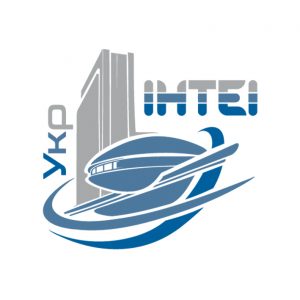Prudka O. V. — Senior Researcher of Ukrainian Institute of Scientific and Technical Expertise and Information, 180, Antonovycha Str., Kyiv, Ukraine, 03680; +38 (044) 521-09-67; olga_prudka@ukr.net; ORCID: 0000-0001-6562-260X
CHILEAN EXPERIENCE IN THE FORMATION AND MODERNIZATION OF A NATIONAL INNOVATION SYSTEM
Anstract. The main factor of sustainable economic growth at the moment is competitiveness, based on the innovative activity of the real sector of the economy. The development of the national economy is increasingly determined by the updating of technologies; the development of new markets and organizational innovations (institutional innovations). Since the implementation of this program requires the development of mechanisms and tools to support the innovation activities of economic entities on the part of the state, it is necessary to study successful international experience. Especially valuable is the analysis of the experience of the development of organizational innovations, the use of which allows a significant advance in the field of innovation and enhance the competitiveness of enterprises in the real sector of the economy and the national economy as a whole. The article shows an overview of Chilean state science, technology and innovation policy of using the “national innovation system” (NIS) as a starting point. The dynamics of changes in key indicators characterizing the development of NIS is also showed. It shows the evolution of the Chilean NIS, based on the development of new and improved existing official documents and regulations defining the main directions of sustainable innovative development of the country. It is concluded that Chile’s economy needs business development and innovation to make the transition from the production and export model of natural resources to an economic model based on its own technological advances.
Keywords: Chile, national innovation system, innovative policy.
REFERENCES
1. UNESCO Science Report: towards 2030 (2016). Published in 2015 by the United Nations Educational,
Scientific and Cultural Organization, UNESCO 2015, Second revised edition 2016. Available at: http://unesdoc.unesco.org/images/0023/002354/235406e.pdf.
2. The Global Competitiveness Index 2017–2018. Klaus Schwab, World Economic Forum, 2017. Available at:
http://www3.weforum.org/docs/GCR2017-2018/05FullReport/TheGlobalCompetitivenessReport2017%E2%80%932018.pdf.
3. Novaya klassifikaciya stran (2013) [New country classification]. Vsemirnyj bank [World Bank]. Available at: http://www.vsemirnyjbank.org/ru/news/pressrelease/2013/07/02/new-country-classification.
4. World Development Indicators: Gross National Income per Capita 2017. Available at: https://data.worldbank.org/country/chile?view=chart.
5. Global Innovation Index (2018). Energizing the World with Innovation. Cornell University, INSEAD, WIPO. Available at: http://www.wipo.int/edocs/pubdocs/en/wipo_pub_gii_2018.pdf.
6. Global Innovation Index 2017 (2017). Innovation Feeding the World. Cornell University, INSEAD, WIPO. Available at: http://www.wipo.int/publications/en/details.jsp?id=4193.
7. Global Innovation Index 2016 (2016). Winning with Global Innovation. Cornell University, INSEAD, WIPO. Available at: http://www.wipo.int/publications/ en/details.jsp?id=4064&plang=EN.
8. Alvares S. (2004) Promoting Innovation in Chile. The expiriens of CORFO. Presentation. Turning Technology into Business: WorkShop for Champions of Innovation System Reform from Latin America and Eastern Europe Co-sponsored by Fundacion Chile, World Bank, Korean and Italian Trust Funds, Santiago, Chile, March 16–18, 2004.
9. DOING BUSINESS 2019 (2019). Training for Reform. 2019 International Bank for Reconstruction and Development. The World Bank. Available at: http://www.worldbank.org/content/dam/doingBusiness/media/Annual-Reports/English/DB2019-report_
web-version.pdf.
10. 2018 International Bank for Reconstruction and Development (2018). The World Bank. Available at: http://www.doingbusiness.org/content/dam/doingBusiness/media/Annual-Reports/English/DB2018-Full-Report.pdf.
11. Chile (Financing SMEs and Entrepreneurs 2016: An OECD Scoreboard). The Innovation Policy Platform
(2016). Available at: https://www.innovationpolicyplatform.org/document/chile-financing-smes-andentrepreneurs-2016-oecd-scoreboard.
12. Prudka O.V. (2016) Priami i nepriami metody derzhavnoi pidtrymky innovatsiinoi diialnosti (dosvid krain OESR) ta otsinka yikh zastosuvannia v Ukraini: naukovo-analitychna dopovid [Direct and indirect methods of state support of innovative activity (OECD experience) and assessment of their application
in Ukraine: scientific and analytical report], UkrISTEI, 68 p. [Electronic resource UkrISTEI].
13. Pysarenko T.V., Kvasha T.K., Paladchenko O.F., Kuranda T.K. et al. (2017) Perspektyvy naukovo-tekhnolohichnoho partnerstva Ukrainy z krainamy Azii, Afryky ta Latynskoi Ameryky [Prospects of Ukraine’s scientific and technological partnership with the countries of Asia, Africa and Latin America],
UkrISTEI, 192 p. [Electronic resource UkrISTEI].
14. Zheleznova O.V. (2014) Innovacionnaya politika Chili [Chile innovation policy]. Ehkonomika [Economy],
15 p. Available at: http://serebrolab.com/wpc o n t e n t / u p l o a d s / 2 0 1 4 / 0 6 / I n n o v a t s i o n n a y a –
politika-CHili.pdf.

